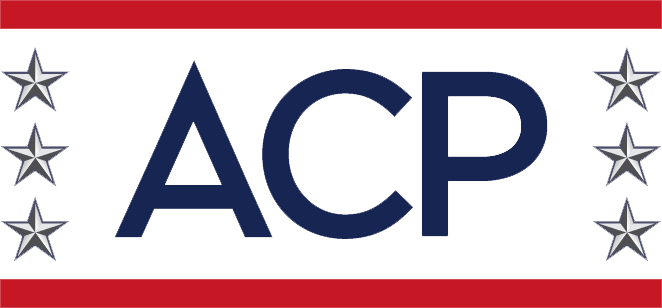The Next Mission: Finding Purpose After Your Transition was originally published on American Corporate Partners (ACP).
Remember those “Choose Your Own Adventure” books you used to love as a kid? Just like in one of those books, service members start their journey in a similar place, but quickly come upon inflection points at which their choices will shape their future. One of the most challenging of these moments is separation, whether you’ve served one enlistment or 20 years. I spoke with three Veterans whose stories highlight that the journey is unique for everyone, revealing some common threads across the transition experience.
In 2017, Alex Genovese, a former U.S. Air Force Nuclear Missiles Officer, was at a crossroads when she and her spouse were deciding on their next duty location. After weeks of negotiation, Genovese and her husband Matt, an active duty U.S. Marine Corps officer, couldn’t obtain orders to the same location.
When her application to reclassify was denied, Genovese chose to exit the Air Force and seek civilian employment. Her decision sparked a series of unforeseen challenges, including a less-than-ideal post-Air Force experience in a new job. “I didn’t understand corporate culture,” she says, and she didn’t want to immerse herself in that world. A military contractor job that she loved didn’t last either, as her spouse got orders to Hawai’i. That’s when Genovese made the difficult decision to become a stay-at-home parent to her two young daughters while she explored her long-term career options.
U.S. Marine Corps Veteran Scott Cammisa decided to make a similar early exit. He was lucky to have the ear of diplomats when he served three years as an Embassy Security Guard in Brazil, the Congo, and Italy. They advised him not to return to the fleet unless he planned to make the military a career.
“I didn’t do any career prep because I knew I was going straight to school [to utilize the G.I. Bill],” he says. But after completing his Bachelor’s in Political Science at Columbia, Cammisa still found himself uncertain about his next move. The career services Columbia offered to more traditional students weren’t pertinent to him as a Veteran.
Luckily, there’s been a recent explosion in veteran service organizations (VSOs) offering diverse professional services. Cammisa found FourBlock, a nonprofit dedicated to helping transitioning service members create a successful career outside of the military, and completed a 12-week boot camp through the organization in 2023.
FourBlock recommended that Cammisa sign up for mentorship through American Corporate Partners (ACP), which offers a no-cost, yearlong program tailored to a Veteran’s goals. He was just a step behind Genovese, who started her ACP mentorship in 2022 with the initial goal of pursuing a career in UX design. Her husband also utilized ACP, along with the COMMIT Foundation, another transition-focused VSO.
Cameo Flores, a Staff Sergeant in the Army National Guard, found help closer to home with his unit’s Forward Readiness Group (FRG). “They’re very well networked in both military and civilian circles,” says Flores, who started working at ACP earlier this year. While he weighs whether to remain in the Guard, join another branch of service, or fully transition to a civilian career, he’s also found Facebook communities helpful for their specificity. “Whatever your question, there’s a niche group that can address it,” he says. Knowing that he has multiple resources at hand is giving Flores the time and space to make an informed decision on his next move.
Genovese, Cammisa, and Flores agree on the importance of seeking and accepting help wherever you find it. Genovese notes that keeping your network active is an excellent way to build a professional support system as you embark on your civilian career. “Don’t be afraid to reach out on LinkedIn or elsewhere, even if you’re cold-messaging.”
Sometimes, Cammisa says, the confidence of your military bearing may make it difficult for others to see that you could use a hand up. “You will find champions for your cause,” he says, “if you’re willing to ask.”
An ACP Mentor can be one of your champions! Veterans with at least 180 days of post-9/11 service, as well as active duty Military Spouses, can apply to connect with an ACP Operations Associate, who will work with you to find the ideal Mentor for your professional goals.

